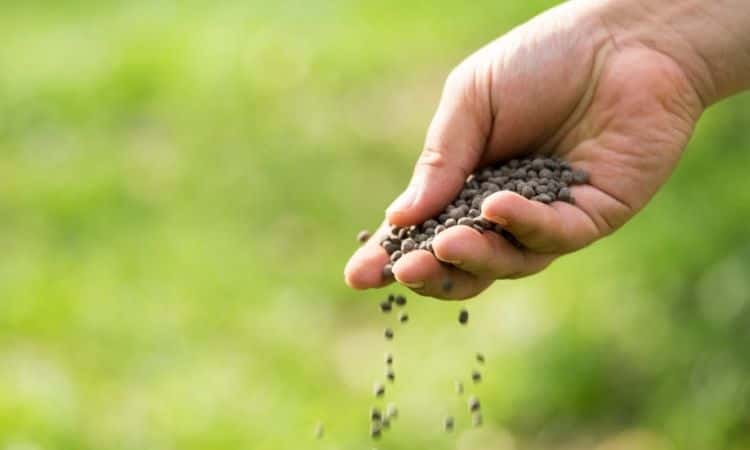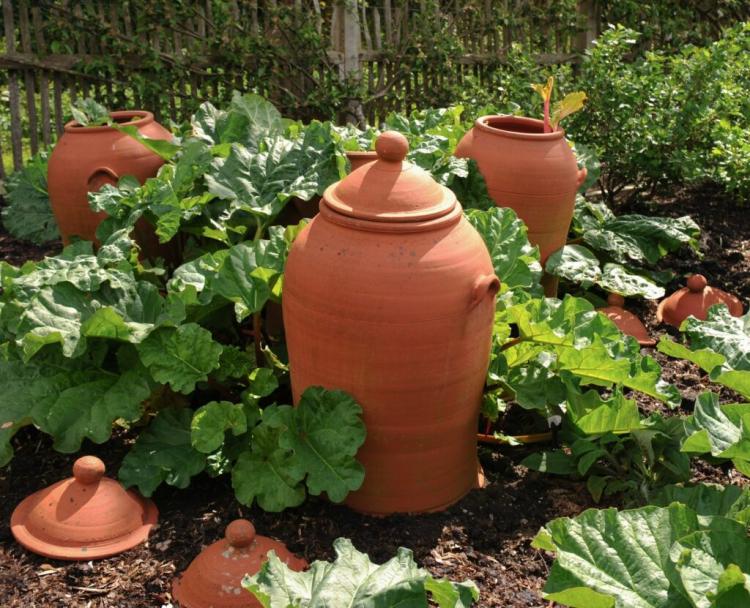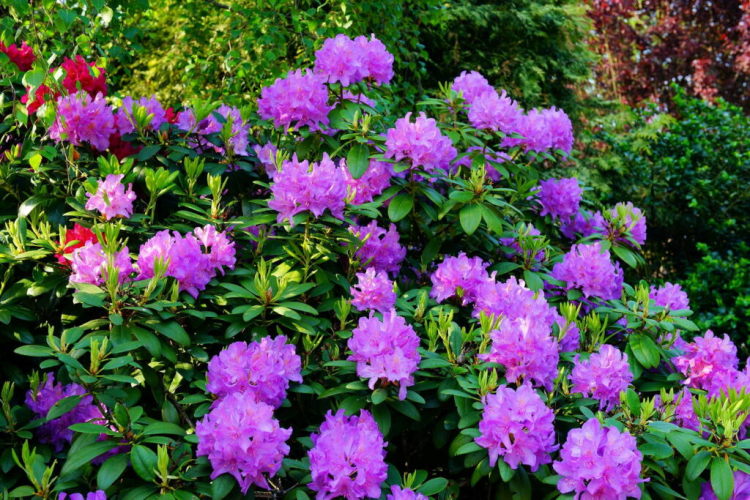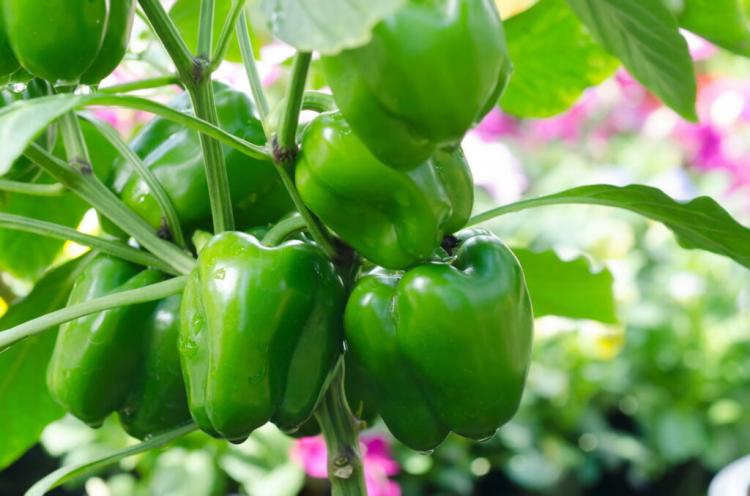Vegan Fertilizer: Benefits And Ingredients Of Animal-Free Fertilizer
More and more plant lovers are looking for vegan fertilizers. We reveal why not every fertilizer is vegan and what benefits animal-free fertilizers bring.
The vegan diet is currently a big trend. It promises more health and at the same time, it contributes to nature and climate protection. Many vegans go even further and do without all animal products such as leather or down. Animal welfare and sustainability can also be put into practice in the garden: Vegan fertilizers promise yields and can do without animals. We’ll tell you why not all fertilizers are vegan, why it’s worth buying vegan fertilizers and what benefits they bring.
Why isn’t every fertilizer vegan?
Fertilizers contain the three primary nutrients nitrogen (N), phosphorus (P), and potassium (K). However, these can come from a wide variety of sources. In classical agriculture, the main source of nutrients is the animal origin. The nutrients come from animal feces, or from other “waste products” of animals. In the field, for example, manure or manure. And hobby gardeners also like to use fertilizers of animal origin such as cornflour. All these fertilizers are therefore not vegan, as they are made up of ingredients derived from animals.
The following animal products can be found in non-vegan fertilizer:
- Urea
- Feces
- Bones
- Slaughterhouse waste
- Horn
- Hair
- Springs
However, there is an alternative: nitrogen, phosphorus, and potassium are also contained in purely plant-based fertilizers.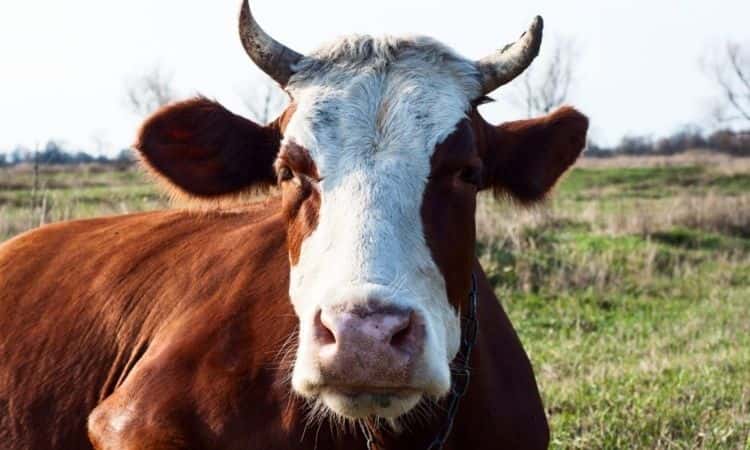
Does vegan fertilizer make sense?
Vegan fertilizers are becoming more and more on the rise. This is because animal welfare and sustainability are becoming more and more important to many. But does fertilizer also have to be vegan? Does that make any sense at all? To answer this question, it is worth taking a look at the ingredients of vegan fertilizer.
Basically, these can be divided into two categories: artificial and organic. Chemically synthetic or mineral fertilizers promise high yields but are far from environmentally friendly. Large-scale resources are needed to produce them, a lot of CO2 is ejected and overexploitation is carried out on nature, because, for example, phosphorus or potassium is only present infinite quantities as minerals.
In addition, artificial fertilizers are easy to wash out and many fertilizers do not end up with the plant, but instead in groundwater or in streams and rivers. Organic fertilizers are more sustainable and environmentally friendly. However, the substances contained in the organic material must first be made available to the plants by microorganisms. Organic fertilizers, therefore, work more slowly than artificial fertilizers. However, the risk of leaching is not so great. The nutrients really arrive where they should go: with the plant.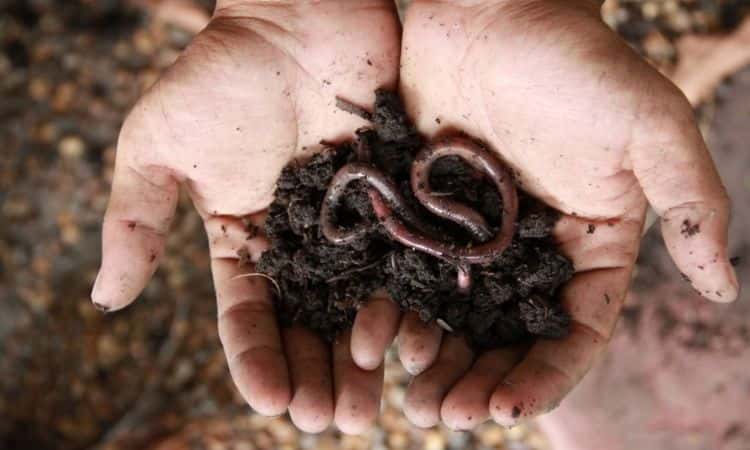
A problem with purely organic fertilizers is that some important plant nutrients, especially phosphorus, are not sufficiently present. Therefore, many fertilizers form a combination of mainly organic ingredients with small mineral content. In this way, the nutrient supply of the plant is ensured all around and at the same time care is taken to protect nature in the best possible way.
Organic fertilizer can consist of a wide variety of ingredients: for example, nitrogen-containing legumes, fermentation residues from the biogas plant, compost, green fertilization, algae, plant extracts, or waste materials from the food and feed industry. If vegan fertilizers are produced from industry by-products, no new resources need to be used for this, but the waste is recycled and reused.
In general, the nutrient concentration in vegan and especially organic fertilizers is lower than in conventional fertilizers. Therefore, you usually need a larger amount of vegan fertilizer. However, this can be just as effective as fertilizer with animal ingredients – it depends rather on the nutrient composition and the amounts of nutrients contained.
Organic vegan fertilizers release their nutrients slowly and gently to the plants. During this period, you can sit back and not have to fertilize. However, vegan fertilizers are often slightly more expensive than their animal alternatives.
Benefits of vegan fertilizer
The greatest advantage of vegan fertilizer is obvious: no animal products are used, which are criticized for emitting a large number of greenhouse gases and thus contribute significantly to climate change. In addition, the keeping of animals consumes much more natural resources than crop production, such as land or water. Vegan fertilizers that do not contain animal ingredients protect the environment and have a lower CO2footprint.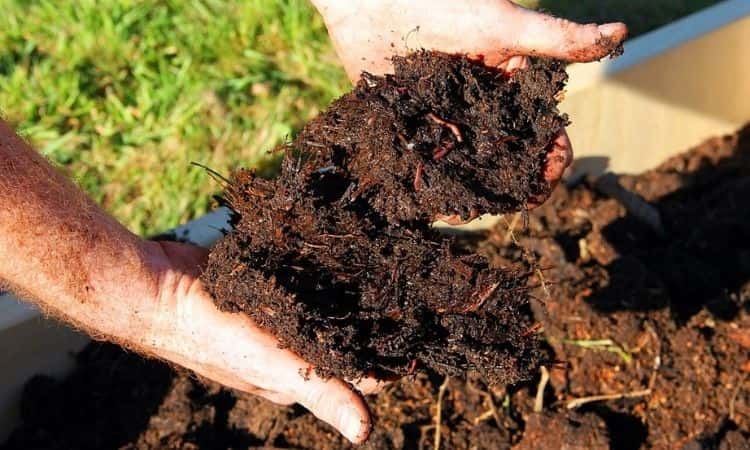
The fact that many animal products may be contaminated with drug residues or germs also deters many gardeners. Especially when growing own foods, for example in vegetable beds, a clear advantage is therefore apparent with vegan fertilizer: the germ load is significantly lower and residues of antibiotics or other medications do not occur.
Vegan fertilizers with organic ingredients also have the advantage that no chemical-synthetic fertilizers and no dangerous pesticides were used in their production. They do not have any chemistry.
This not only pleases the environment but also has a direct impact on the gardener: In contrast to many mineral alternatives, vegan fertilizers with long-term organic effects are absolutely harmless to humans and animals. This eliminates annoying waiting times after fertilization, for example by not entering the lawn or by not harvesting the vegetables.
Vegan fertilizers bring additional benefits: they ensure the supply of all-important plant nutrients. The organic components improve soil fertility, support soil life, improve soil structure, and increase soil water and heat storage capacity. As a result of the slow implementation, there is little or no risk of overfertilization or leaching.
Last but not least, vegan fertilizers with long-term organic effects only release their nutrients to the plant if it really needs them. The nutrient conversion takes place depending on temperature and humidity. This largely prevents a release from taking place when there is no plant growth.
Especially in the application, the vegan fertilizer can have additional advantages: fertilizers with the animal origin, for example, guano or horn shavings, often have a penetrating smell, which is perceived by many gardeners as disturbing. This is not the case with vegan fertilizer – the smell is usually much more subtle and is not perceived as unpleasant or penetrating after fertilization. At the same time, many vegan fertilizers are virtually dust-free – a big advantage, especially if you want to fertilize in dry summers.
Vegan fertilizers, which consist mainly of waste products from the feed or food industry, have an additional advantage in terms of sustainability: resources are spared and substances that would otherwise have ended up in the garbage are recycled. In some cases, they are full of valuable nutrients that can be used well in the garden.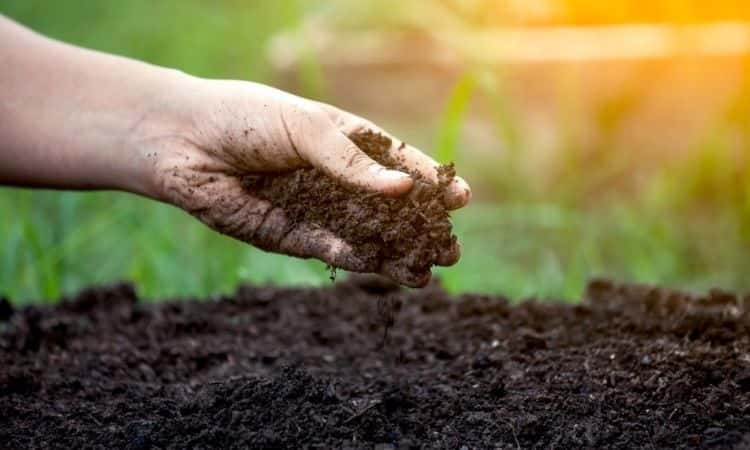
Advantages of organic vegan fertilizers with organic long-term effects at a glance:
- Dispenses with all ingredients derived from animals
- Lower CO2-Imprint compared to animal and mineral fertilizers
- Reduced germ load
- Free from antibiotics and drug residues
- Biofertilizers are free of chemical pesticides and pesticides
- Environmentally friendly and harmless to humans and animals, as they do without chemicals
- Improve soil fertility and support active and healthy soil life
- Work gently and in the long term just when the plant needs nutrients
- No intrusive smell and almost dust-free
- When waste products are used, this saves resources
They are all 100% vegan, approved for organic farming, free of unnecessary chemicals, mainly organic with low mineral content, and consist mainly of plant substances from recycling processes of food and feed production.
It is also possible to produce vegan fertilizer yourself. Kitchen waste can be used for this purpose, for example. You can find out all about the use and benefits of coffee grounds as fertilizer in our special article on the subject.
